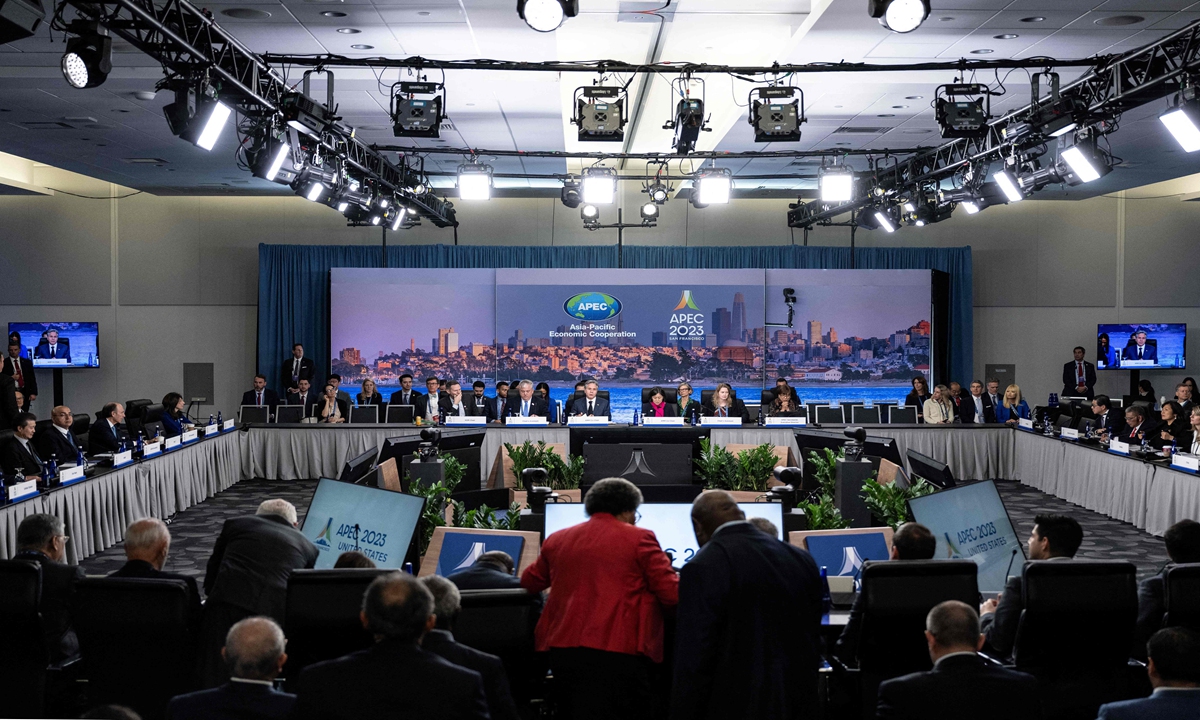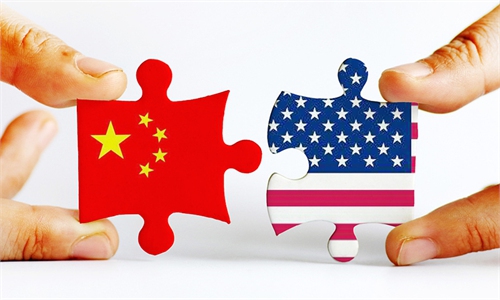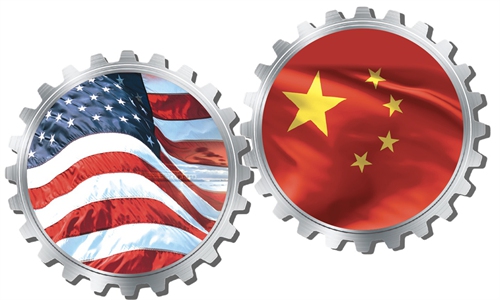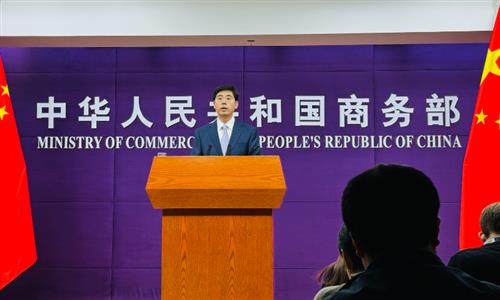APEC economies aspire to expand business with both China and US, do not want new cold war: US scholar
Washington and Beijing ‘will have a warmer tone for the next six months’: American scholar

Economists' VIEW logo

A scene from the APEC Ministerial Meeting at the APEC summit from November 11 to 17, in San Francisco, California Photo: CFP
Editor's Note: The China-US summit meeting and the 30th APEC Economic Leaders' Meeting in San Francisco attract widespread attention, which will help stabilize China-US relations and inject new impetus into the economic recovery in the broader Asia-Pacific region. What does the high-profile China-US summit mean to bilateral economic and trade ties? Gary Hufbauer (Hufbauer), non-resident senior fellow at the Washington-based US think tank Peterson Institute for International Economics, noted in an interview with Global Times (GT) reporter Wang Yi that rhetoric from Washington and Beijing officials will have a warmer tone during the next six months or longer. Asia-Pacific regional economies aspire to expand business with both the US and China.
Gary Hufbauer, non-resident senior fellow at the Washington-based US think tank Peterson Institute for International Economics Photo:Courtesy of PIIE
GT: What role do economic and trade relations play in overall China-US ties?
Hufbauer: Economic and trade relations are certainly of great importance in the China-US ties. Despite the tensions and frictions in recent years, US-China trade continues to grow in absolute terms. Aggregate merchandise trade data simply do not tell a "decoupling" story. While both the US and China have increased their share of trade destined for, or coming from, other countries, the decline in bilateral US-China trade shares is very modest. Moreover, we at PIIE do not project significant declines in bilateral trade shares over the next two years.
The dollar value of US-China trade grew significantly between 2019 and 2022, notwithstanding declines in trade flows of certain products and categories due to the trade war started by Trump. The persistence and even growth of the two countries' total trade notwithstanding political and economic disputes reflects the mutual benefit that private firms see in this commercial relationship. Thus, based on the current state of geopolitical relations, we posit that bilateral commerce will probably expand.
As demonstrated in the recent data, the persistence and even growth of total trade despite political barriers attests to the strength of mutual benefit. As trade growth has historically outpaced GDP growth, we estimate that US-China trade will likely expand between now and 2025, to around $855 billion. Despite potential US "friend-shoring" - reducing investments and supply dependencies in China and channeling them instead to "friendly" economies - it is not likely that aggregate US imports from alternative sources will increase dramatically over the next three years.
GT: How would you describe the economic interdependence between China and the US, and its impact on both economies? How do you look at the "decoupling" or "de-risking" rhetoric in the US and other Western countries?
Hufbauer: By our calculations at PIIE, US-China trade provides a strong spur to economic growth in both countries. We estimate that a $100 billion increase in bilateral trade results in a $30 billion growth in GDP in each country. Bilateral foreign direct investment generates more gains.
Conversely, Congressional "China hawks" who seek to "decouple" our two economies would make both countries poorer if their goals were realized. Fortunately, the Biden administration rejects "decoupling."
The US and China hit record trade levels in 2022, suggesting that calls for severe or even total economic "decoupling" between the world's two economic superpowers may be injudicious.
I realize that, to many Chinese observers, "de-risking" is just a more polite term for "decoupling." However, I think Treasury Secretary Janet Yellen is pushing back on "decoupling," and emphasizing "de-risking," as a way to confront the Congressional "China hawks" and limit the expansion of goods and technology subject to national security controls.
GT: How do geopolitical factors, such as the much-touted security concerns, influence the economic and trade relation between the two giants?
Hufbauer: President Joe Biden has kept his predecessor's tariffs in place, and his economic team has outlined measures to restrict Chinese access to sensitive American technologies and sought economic alliances in the Indo-Pacific region. Security concerns and human rights differences have further aggravated bilateral relations. Consequently, a trend of "slow decoupling" between the US and China is projected to continue between now and 2025.
Analysis of 2022 bilateral trade data shows that China is diversifying some purchases of foreign goods away from the US. US exports of automobiles and aircraft to China - the two largest manufacturing export sectors prior to the trade war - have almost disappeared, and exports of semiconductors, liquefied natural gas and coal have plunged. Similarly, US imports of selected products have shifted to sources other than China. As the US and China reduce their interdependence through trade, questions of where trade gets redirected and which countries benefit by becoming new suppliers/customers are increasingly pertinent.
So far, the dollar reduction in two-way trade, on account of security restrictions, is modest. My concern is that, without better relations between Beijing and Washington, the scope of security restrictions will expand quite substantially.
GT: In your opinion, what role should the US government play in shaping the trade relationship with China to benefit American companies?
Hufbauer: The US government should be clear and forceful that it applauds US firms doing trade or investment with China outside national security areas.
GT: How do you see China's role in APEC?
Hufbauer: China is already the leading economic player in the Asia-Pacific region, and its footprint will expand in the decades ahead.
GT: How do you perceive the significance of China-US relations in the Asia-Pacific region? Will the recent development in the bilateral ties help the Asia-Pacific region?
Hufbauer: Most countries in the Asia-Pacific region want to expand business with both and US and China. They do not welcome a new cold war.
GT: Many observers see the China-US summit meeting in San Francisco as a "window of opportunity." What opportunities do you think the current APEC meeting will bring for both China and the US?
Hufbauer: Since what we called the "Balloon-gate" of February 2023, the Biden administration has made a concerted effort to improve diplomatic relations with China. Yellen and other Biden administration officials disavow any intention to "decouple" the US economy from China; rather, they speak of "de-risking" or "diversifying" supply chains to reduce reliance on China to protect America's national security.
I expect that rhetoric from Washington and Beijing officials will have a warmer tone for the next six months, perhaps longer. So a period of "good feeling" awaits us. But I do not expect significant reduction of the trade barriers between the two countries.



